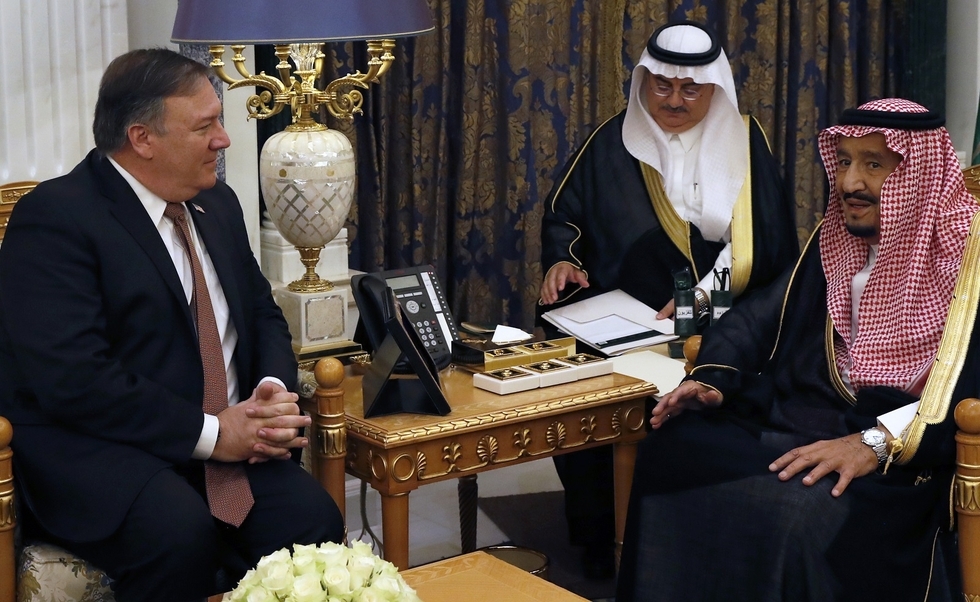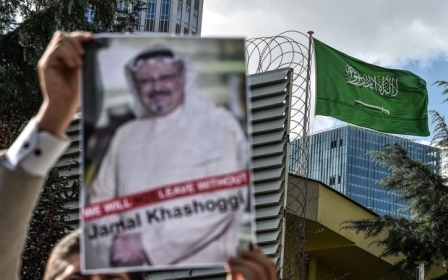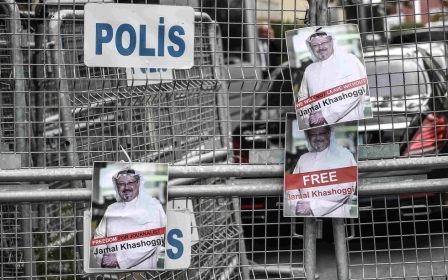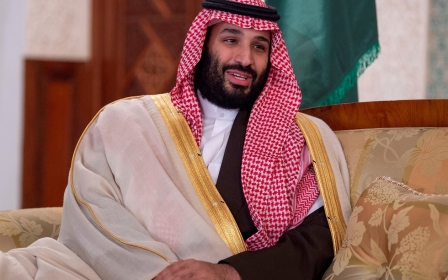Saudi probe into Khashoggi murder lacks credibility, US official says

A senior US official expressed scepticism about Riyadh's handling of the investigation into the murder of journalist Jamal Khashoggi, despite President Donald Trump's persistent backing of Saudi rulers.
The official, who chose not to be identified, said Saudi Arabia's probe still lacks full credibility and accountability.
The comments came on Friday, as Secretary of State Mike Pompeo announced a Middle East tour including a visit to Riyadh, where his office said he will seek an update on the Saudi Arabia's investigation into Khashoggi's murder later this month.
The US official said Pompeo intends to "continue to push for accountability and credibility from the Saudi leadership as they move through the legal process that began earlier this week".
"I don’t think from our point of view that the narrative emerging from the Saudis or the legal process is yet hit that threshold of credibility and accountability," the official said. "So we have continued to work this issue with the Saudis, underscoring that it’s in their interest to pursue this as aggressively as they can to get this albatross off their backs and to get out from under the shadow of this incident which has caused such an outcry."
Pompeo is expected to meet Saudi leaders to discuss the situations in Yemen, Iran and Syria, his office said in a statement on Friday, which outlined the visits on his regional tour from 8-15 January.
"The Secretary also will seek an update on the status of the investigation into the death of journalist Jamal Khashoggi," said Robert Palladino, the State Department's deputy spokesman, in the statement.
Pompeo has repeatedly defended Saudi Arabia amid the scandal surrounding the killing of Khashoggi, a Saudi government critic and prominent columnist at the Washington Post who was killed inside the Saudi consulate in Istanbul in early October.
Middle East Eye reported in November that the US secretary of state even handed Saudi leaders a roadmap to weather the fallout of the journalist's death.
While Saudi leaders have repeatedly denied the country's de facto ruler, Crown Prince Mohammed bin Salman, knew anything about Khashoggi's killing, human rights groups, US politicians - including the entire Senate - and the CIA have all come to the conclusion that bin Salman, known as MBS, ordered his assassination.
Despite this, Pompeo has remained steadfast in his support of MBS and the Saudi government, as has US President Donald Trump and key members of his administration.
Early last month, Pompeo vowed to continue supporting Saudi Arabia in its war in Yemen, despite growing calls in Washington to halt US assistance to the Saudi-led coalition fighting there.
He has also repeatedly said there is no "direct evidence" linking MBS to Khashoggi's gruesome murder on 2 October.
In a Wall Street Journal column published late in November, Pompeo said the US-Saudi partnership was "vital" to US national security interests and the stabilisation of the Middle East.
"Riyadh is helping manage the flood of refugees fleeing Syria’s civil war by working with host countries, cooperating closely with Egypt, and establishing stronger ties with Israel," Pompeo wrote.
Unknown suspects
Earlier this week, Saudi Arabia's prosecutor announced that the trials of 11 Saudis accused of being involved in Khashoggi's murder had started in the Gulf kingdom.
The death penalty would be recommended against five of those suspects, the prosecutor said on Thursday.
So far, none of the suspects' identities have been released publicly.
Saudi Arabia will be Pompeo's sixth stop on an eight-country tour of the Middle East.
Before landing in Riyadh, he will visit Jordan, Egypt, Bahrain, the United Arab Emirates and Qatar, where he will lead a US delegation at the US-Qatar Strategic Dialogue in Doha, his office said.
Qatar remains embroiled in a diplomatic spat with Saudi Arabia, the UAE and several other of its former regional allies, which imposed a blockade on the small Gulf peninsula in 2017.
Pompeo will meet with Qatari leaders to discuss "the importance of a united Gulf Cooperation Council (GCC)", Palladino said in the State Department's statement.
Having a united GCC will help stand against "the Iranian regime’s destabilizing activity and advancing peace, prosperity, and security in the region", Palladino said.
The US secretary of state will end his trip with stops in Oman and Kuwait, where he is again expected to stress the importance of unity in the region.
New MEE newsletter: Jerusalem Dispatch
Sign up to get the latest insights and analysis on Israel-Palestine, alongside Turkey Unpacked and other MEE newsletters
Middle East Eye delivers independent and unrivalled coverage and analysis of the Middle East, North Africa and beyond. To learn more about republishing this content and the associated fees, please fill out this form. More about MEE can be found here.




